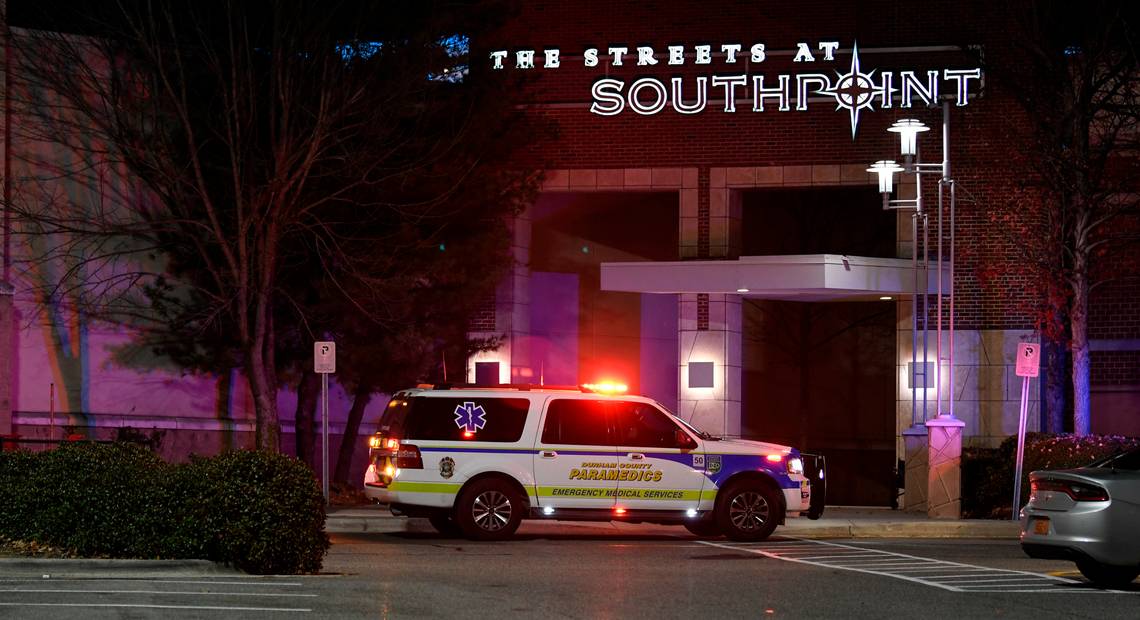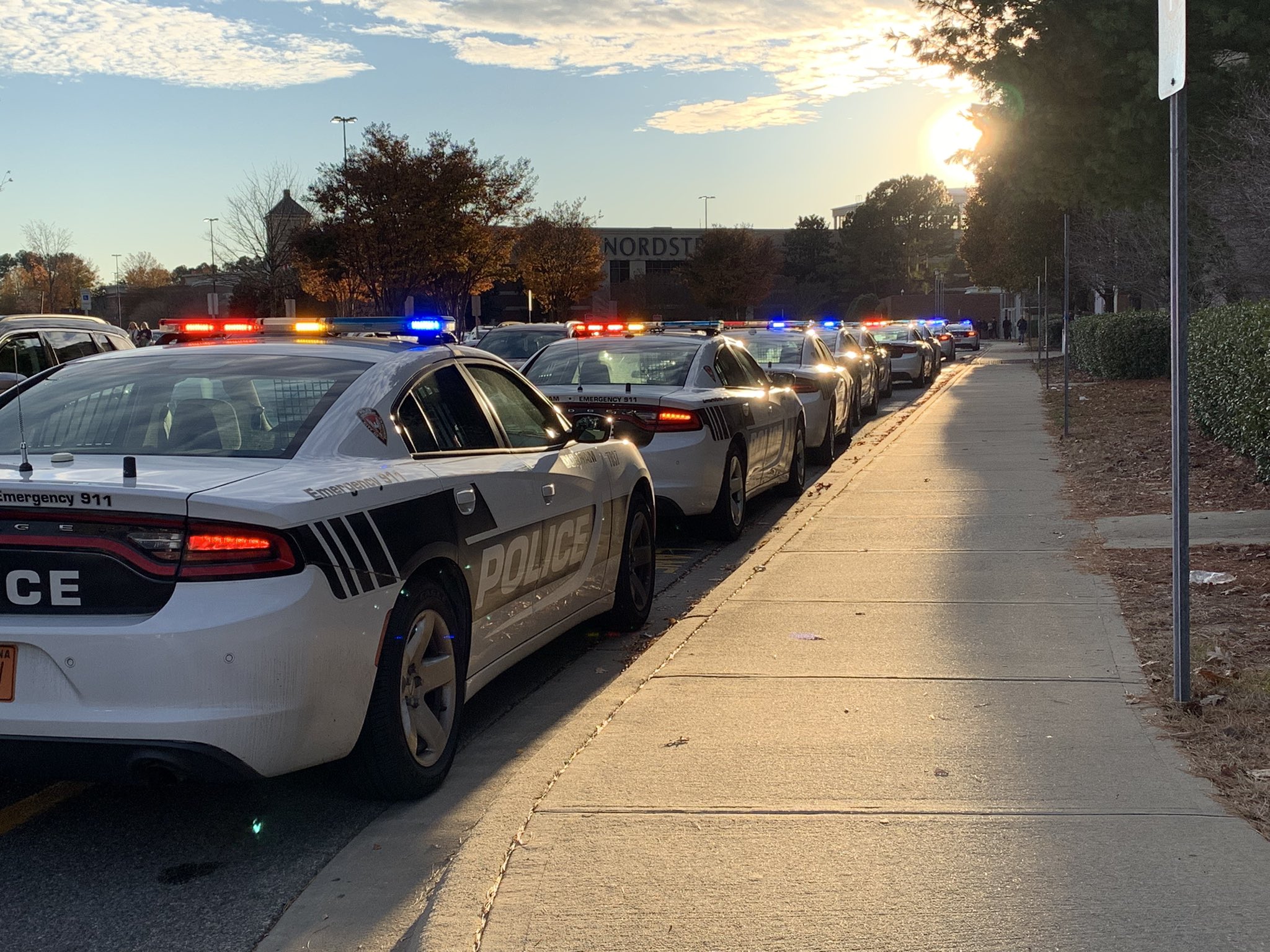Advocacy groups said on Friday that they were not surprised after the Durham Police Department released a report showing evidence of disproportionate traffic stops for African American men.
The study looked at traffic stop data between 2010 and 2015 and determined that Durham Police Officers pull over black men at disproportionate rates, especially during the daytime. The study was conducted by RTI international, a non-profit research institute.
Mark-Anthony Middleton, member of the Durham C.A.N. Clergy caucus, said that this information was not news to him.
“Turns out that we weren’t hallucinating about racial profiling, turns out that we did have some issues,” said Middleton. “So we are very thankful for RTI coming in and confirming, I guess, at a higher level, what we already knew both anecdotally and what was documented.”
Interim Durham Police Chief Larry Smith said the police department must accept the findings of the study and “ensure that bias of any kind is never a part of police operations.” In response, Durham Police have equipped more cars with cameras, will review officers traffic stops data more often and are requiring a signed form for all consent searches at traffic stops.
The reported noted that black men were more disproportionately pulled over during the day than at night but that this discrepancy had been falling over the last several years, which Smith attributed to changes in police policies. Black men in Durham were still about 50% more likely to be pulled over at any time of the day than white men.
The report did not find any racial dispartity among female drivers.
The FADE Coalition in Durham, which stands for fostering alternative drug enforcement, submitted policy recommendations to the Durham Police Department in a letter back in October 2013.
Clarence Birkhead, Durham Committee on the Affairs of Black People, said they still supported those polices.
“We’ve said this for the last four years, so some of those recommendations have been put into place and our city council has taken steps to ensure that those recommendations are in place today but there is still much work to be done,” said Birkhead.
The reported admitted that the HEAT team, which focuses on drug, vice and gang violence, was responsible for the greatest disproportion of traffic stops. In the same letter, the FADE coalition described the HEAT team as representing an ongoing civil rights violation against Durham’s African American population.
While the report recognized the existence of a racial disparity, it did not give an explanation for the bias, said David Hall with the Southern Coalition for Social Justice.
“They seemed to be surprised that there was bias in their policing,” said Hall. “They said that they knew that they had disparate numbers but they believed they could have disparate numbers without bias. They also have no explanation to why they have bias because it wasn’t included in the report.”
The Durham Police Department is currently in the process of selecting a new police chief. Middleton said this was an opportunity for Durham to do a fundamental review of policing in the city.
“We have a police chief seat that is open right now, so we need to make sure that the next person that comes in, is brought into strategies and polices that will transform our police department.”
In December a new website was launched that tracks the demographic stop and search patterns of North Carolina law enforcement.
Related Stories
‹

Chapel Hill Police Identify, Charge Third in High-Speed Chase and Shooting From JanuaryChapel Hill Police delivered 17 charges stemming from the Jan. 25 shooting to 19-year-old Maurice Keys as he was held in Durham County.
![]()
Durham Police Charge Hillsborough Man in Fatal I-85 CrashPolice said a crash along Interstate 85 near the Orange County line led to the death of a Durham man and charges for a Hillsborough resident.

Durham Sheriff Staffing Shortages Worsen Existing IssuesLaw enforcement agencies across the country have struggled with staffing shortages due to the pandemic and negative attitudes toward policing in America. In Durham County, the sheriff’s office says the shortage is hurting other services.

Police: Man Shot at NC Mall Remains in Critical ConditionWritten by THE ASSOCIATED PRESS Police in North Carolina say that a man remains in critical condition following Friday’s shooting at a shopping mall that was packed with shoppers on the day after Thanksgiving. Durham police said Saturday that investigators continue to investigate the incident at The Streets at Southpoint. The shooting also wounded a […]

Police Chief: 3 Shot in Fight at North Carolina MallWritten by TOM FOREMAN Jr. and JONATHAN DREW Three people were shot and wounded Friday during an apparent fight between two groups at a North Carolina mall crowded with shoppers on the day after Thanksgiving, the police chief said. Authorities said in the late afternoon that one person was detained and there was no further […]
![]()
Minnesota Shooting Charging Decision Awaited, Protests Go OnWritten by MOHAMED IBRAHIM and MIKE HOUSEHOLDER Prosecutors expect to decide Wednesday whether to charge a white former police officer who fatally shot a Black man during a traffic stop in a Minneapolis suburb, sparking nights of protests and raising tensions amid the nearby murder trial of the ex-officer charged with killing George Floyd. Brooklyn Center police officer […]

Explaining Racial Inequity and Policing Disparities with 20M NC Traffic StopsOne UNC professor examined racial disparities in the justice system by looking at North Carolina’s 20-million routine police traffic stops since 2002. As racial inequity and unfair policing continue to be brought to the world’s attention with current protests, more and more questions are being raised about how deep this systematic inequality runs. Frank Baumgartner […]

Sheriff's Office: Man Arrested After Fleeing Orange County Traffic StopOrange County Sheriff’s Office and other law enforcement agencies arrested a Durham man who fled an Orange County traffic stop on Wednesday. A release from the office said Kahlil Christopher, 24, fled from a vehicle after a trooper from the North Carolina State Highway Patrol pulled the vehicle over on Groucho Road near Highway 70. […]

Chapel Hill Man Arrested After Robbing Durham Gas Station With KnifeDurham Police arrested a Chapel Hill man after he allegedly robbed a gas station store with a knife Sunday night. The police department shared a release on Monday saying it arrested Bryant Lamont Boyd, 48, of Chapel Hill after an incident at the Family Fare store on Hillandale Road. Officers charged Bryant with robbery with a dangerous […]
![]()
Former UNC Coach Sylvia Hatchell Cited in Death of Elderly WomanFormer UNC women’s basketball coach Sylvia Hatchell has been cited with a misdemeanor in her involvement with a pedestrian collision in Durham on Monday. Durham Police cited Hatchell, who coached at UNC from 1986 to 2019, with a misdemeanor death by vehicle and unsafe movement violation, according to a news release by the department. Authorities said the […]
›








